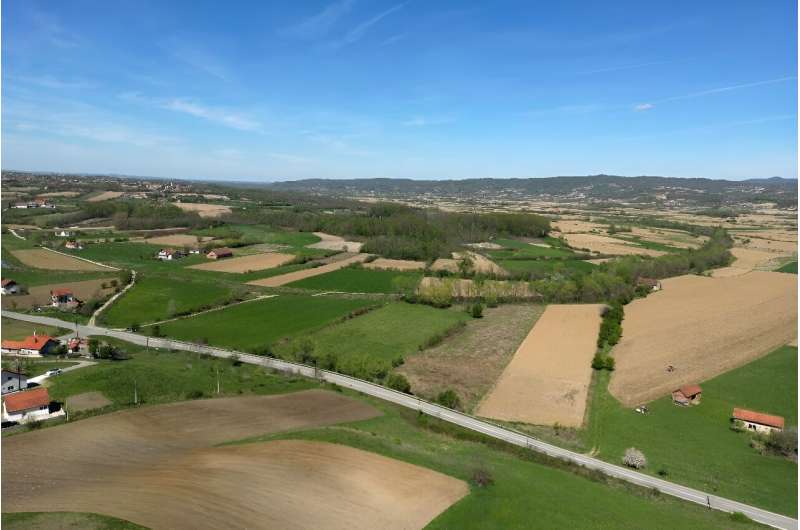
President Aleksandar Vucic said Serbia could exploit lithium as early as 2028 following new guarantees from Australian mining giant Rio Tinto and the EU over the controversial project, the Financial Times reported on Sunday.
According to Rio Tinto, Jadar in western Serbia holds one of Europe's largest reserves of lithium—a strategically valuable metal crucial for electric vehicle battery production.
The deposits were discovered in 2004 but the Serbian government halted the mining project in 2022 after weeks of protests sparked by fears for the environment and public health.
Vucic told the Financial Times that the mining giant and the European Union had given "new guarantees" regarding compliance with environmental standards.
"If we deliver on everything, (the mine) might be open in 2028," Vucic said, adding that it would be a game-changer for the country and the entire region.
The president said the mine is expected to produce 58,000 tonnes of lithium per year, which would equate to 17 percent of electric vehicle production in Europe or 1.1 million cars.
Opponents had previously accused Rio Tinto and Vucic of not being transparent about the process and of refusing to publish environmental impact reports.
On Thursday, the mining giant published an environmental impact report that aimed to assuage concerns and reset the terms of the debate, the group promised "safe, reliable, and proven technology".
Rio Tinto denounced "a broad misinformation campaign based on defamatory elements" advancing "unsubstantiated claims" that the project would harm water resources, soil, biodiversity, air quality and human health.
In September 2023, Serbia signed a letter of intent with the European Commission for a strategic partnership in batteries and raw materials.
© 2024 AFP
Citation: Serbia could mine lithium as early as 2028: FT (2024, June 16) retrieved 16 June 2024 from https://techxplore.com/news/2024-06-serbia-lithium-early-ft.html
This document is subject to copyright. Apart from any fair dealing for the purpose of private study or research, no part may be reproduced without the written permission. The content is provided for information purposes only.
